State of the Black World conference confronts challenges—seeks solutions
By Michael Z. Muhammad -Contributing Writer- | Last updated: Nov 23, 2016 - 9:45:29 AMWhat's your opinion on this article?
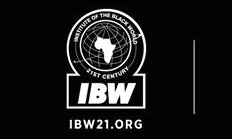
|
The conference was organized by the Institute for the Black World and Dr. Ron Daniels. Dr. Daniels has periodically convened activists and leaders to assess the outcome of presidential elections, confront issues, and find ways to work together. The Nov. 16-20 conference theme was “It’s Nation Time ... Again! Racial Healing and Collaboration for Black Empowerment.”
It featured a who’s who of Black leaders and thinkers and was dedicated to the memory of the brilliant poet, playwright and political activist Amiri Baraka. The conference was held at the Robert Treat Hotel.
Conference participants discussed a wide range of topics, including town hall meetings on reparations, education, economic development, spirituality and healing the Black family amid the war on drugs, mobilizing and organizing hip-hop activists and cultural workers for Black empowerment and implications of the U.S. presidential election on Black America and the Pan African World.

(L-R) Dr. Ron Daniels of the Institute for the Black World 21st Century | Dr. Maulana Karenga | Fredericka Bey of Women In Support of the Million Man March introduces
Min. Farrakhan. Photos: Andrea Muhammad
|
According to conference organizers, the sessions were intentionally chosen to explore ways to draw on cultural, spiritual, historical and institutional strengths to enhance or devise collaborative strategies and models for Black empowerment.
The five-day conference also focused on the struggle for democracy and development in Africa, the Caribbean, and Central and South America. A major town hall explored developments in the U.S. and the global reparations movements.
“We need more Black folks like Ron Daniels to exhibit the amazing tenacity that kept him on focus and on fire for African American people. Too often, our focus is episodic, revolving around public incidents—who got shot today, or who got racially profiled,” said conference presenter and economist Dr. Julianne Malveaux said. “The fact is that we are all profiled, all day, every day, either frontally or subtly. Just a few are committed to rejecting the subtle profile in both domestic and foreign policy. Dr. Ron Daniels is one of the few, and his work on Haiti speaks to the ways he connects domestic and foreign policy.”
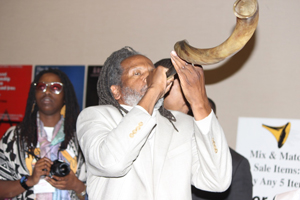
Man blows ram’s horn at conference closing.
|
The authenticity of the conference was cemented on the final day with presentations by the Honorable Minister Louis Farrakhan, of the Nation of Islam and convener of the largest gathering of Black people in American history, the Million Man March, and Dr. Maulana Karenga, founder of Kwanzaa and a brilliant visionary and scholar. Participants were ecstatic as Minister Farrakhan committed financial resources to the Institute of the Black World to help create ministries to serve Black people and interests.
“The way this conference was organized was solution-orientated. In every one of the plenary sessions, people came together to have outcomes to organize things. So we have a basis to build on,” explained Dr. Daniels. “We had a rich exchange with people sharing with each other, learning from each other and coming through with concrete ideas.”
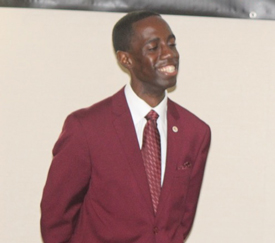
Student Minister Jackson X of Newark helped to make conference a success. Photos: Final X
|
“The timing of the conference was providential. Who would have thought when we call for this conference with this theme? We came to this place for a reason, it was about honoring Amiri Baraka. The theme ‘Its Nation Time’ came to me because it is a time where we need to get up and get moving and then the whole notion of racial healing and collaboration for Black empowerment. Who would have known the timing? That’s providential, that’s God moving, the ancestors moving in history. The conference was amazing, the love, the sharing. It’s not about the individual but about the process that was put in place and the incredible people that help make it possible.”
Conference highlights, according to Dr. Daniels, included a Pan African Institute discussion which actor and activist Danny Glover chaired; a commitment to intensify the struggle for reparations; a major town hall meeting on reparations; the critique of national elections with analysts like Dr. Julianne Malveaux, Mark Thompson, and others.
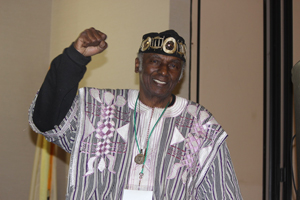
Dr. Leonard Jeffries, a respected Black scholar
|
Abdul Akbar Muhammad, international representative for Min. Farrakhan and the Nation of Islam, said the change in the political climate and election of Donald Trump as president increased interest and participation in the conference. Min. Farrakhan made a call for separation during the conference as people are considering different strategies, but it was clear and strong, he said.
The conference was excellent, the spirit was great and the question was what is next for the conscious community, he said. They talked about solutions to problems, such as mass incarceration, as well as the workshops about the Caribbean and the challenges Africa faces, he added.
“Our theme is It’s Nation Time, which is a reemphasis on the urgent need to build our Black institutions to take control of Black territory, to be in a position to say Black nationalism only means to control the politics, economics and social life of the community. So we have to make that real now,” said Dr. Daniels.
With closing messages and calls for unity and self-determination by Minister Farrakhan and Dr. Karenga, the conference spoke to the threat as racial attacks rise and overt White hostility reasserts itself—beginning perhaps in the White House itself.
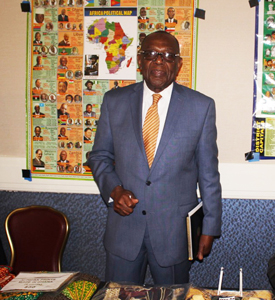
Abdul Akbar Muhammad
|
I think a lot of us got real comfortable because we had a Black president. We thought that we didn’t have to fight as much anymore. But this is the backlash to that—the white lash—really just like what happened during Reconstruction,” said Mark A. Thompson, also known as Matsimela Mapfumo, who hosts a talk show on Sirius XM radio. “So they’re pushing it, we got to push back even harder.”
He and other conference participants were clear on one thing: White hostility in the Trump era would force Blacks to one another for survival and solutions. And that, they said, was a good thing.
(Richard B. Muhammad, Jehron Muhammad and Charlene Muhammad contributed to this report.)
INSIDE STORIES AND REVIEWS
-
-
About Harriett ... and the Negro Hollywood Road Show
By Rabiah Muhammad, Guest Columnist » Full Story -
Skepticism greets Jay-Z, NFL talk of inspiring change
By Bryan 18X Crawford and Richard B. Muhammad The Final Call Newspaper @TheFinalCall » Full Story -
The painful problem of Black girls and suicide
By Charlene Muhammad -National Correspondent- » Full Story -
Exploitation of Innocence - Report: Perceptions, policies hurting Black girls
By Charlene Muhammad -National Correspondent- » Full Story -
Big Ballin: Big ideas fuel a father’s Big Baller Brand and brash business sense
By Bryan Crawford -Contributing Writer- » Full Story






 Click Here Stay Connected!
Click Here Stay Connected!








